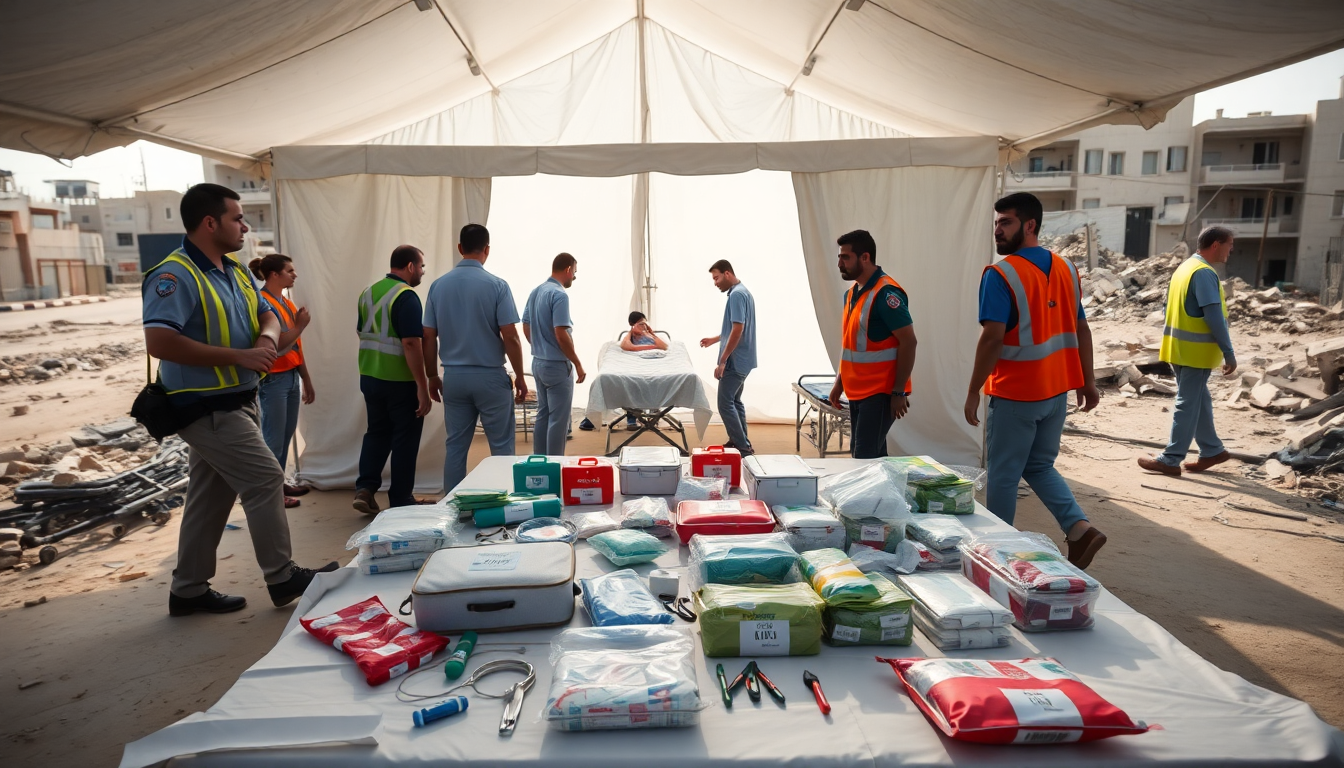Table of Contents
The situation in Gaza is truly heartbreaking, as the ongoing conflict continues to worsen humanitarian needs. Recent reports reveal that Israeli authorities are denying medical workers much-needed access to provide essential relief services in the region. This refusal has sparked outrage and raised serious questions about the fate of civilians caught in the crossfire. So, why is it important for us to understand the dynamics of this issue? It’s crucial because it touches on international law, human rights, and the moral responsibilities of everyone involved in the conflict.
The Current Humanitarian Crisis in Gaza
Right now, Gaza is facing a severe humanitarian crisis marked by widespread famine and a lack of adequate medical care. Many reports indicate that the ongoing blockade and hostilities have created conditions that some are calling a crime against humanity. The international community is deeply concerned about the alarming rates of malnutrition and the lack of access to food, which many see as deliberate acts of deprivation against the civilian population.
As the situation worsens, the urgency for immediate humanitarian intervention becomes increasingly clear. However, the obstacles hindering medical personnel from entering Gaza complicate relief efforts even further. The denial of access not only stifles the provision of vital medical care but also raises ethical questions about how civilians are treated in conflict zones. What can we do to help change this narrative?
Legal and Ethical Implications
The refusal of medical access in Gaza presents significant legal and ethical dilemmas. Under international humanitarian law, all parties involved in a conflict are required to ensure that civilians receive adequate care and protection. The current restrictions imposed by Israeli authorities are seen by many as violations of these legal obligations. How can we hold those responsible accountable for such actions?
Moreover, the definition of what constitutes a ‘combatant’ has become a contentious issue, complicating the rights of civilians. These vague definitions create confusion and can lead to dire consequences for those simply trying to survive. As the humanitarian situation deteriorates, it’s crucial to demand clarity and adherence to international law.
Consequences for Civilians
The impact of restricted medical access is felt most acutely by the civilian population in Gaza. Hospital evacuations, often justified as security measures, have resulted in tragic losses of life. Patients who rely on critical care find themselves vulnerable, and the consequences of these decisions can be fatal. Isn’t it alarming to think about how many lives hang in the balance?
Moreover, we cannot underestimate the psychological toll on civilians, worsened by food shortages and the constant fear of violence. The famine, described by some as a manufactured crisis, highlights how politics can overshadow humanitarian needs, raising questions about the motives behind such actions. As the international community looks on, the urgent need for action grows more pressing. What will it take for change to happen?
Looking Ahead: Potential for Change
The future of humanitarian access in Gaza remains uncertain, yet there is potential for change. Advocacy from international organizations and pressure from the global community may eventually lead to a reevaluation of access policies. The hope is that through dialogue and negotiation, pathways for medical personnel can be opened, allowing essential aid to reach those in desperate need.
In conclusion, the situation in Gaza serves as a stark reminder of the complexities involved in humanitarian efforts amid conflict. It challenges us to reflect on our shared responsibilities towards those who are suffering and to seek solutions that prioritize human dignity and life. What role will you play in advocating for change?


